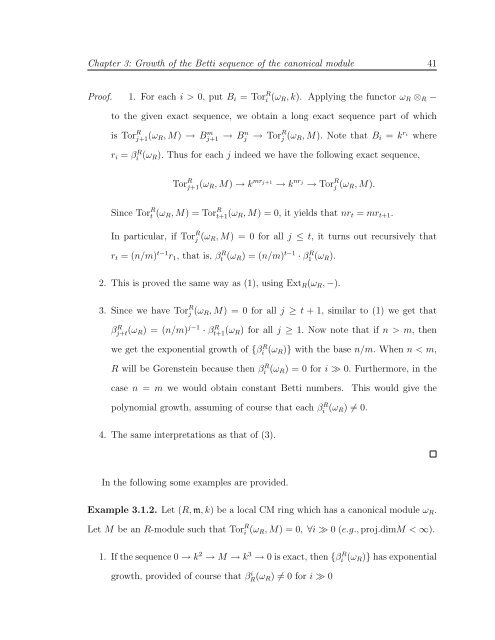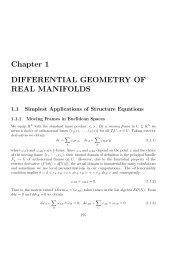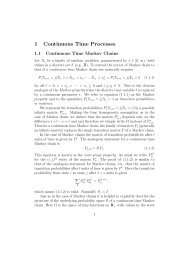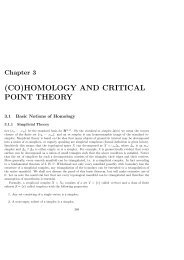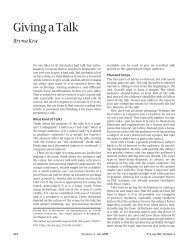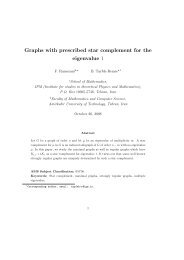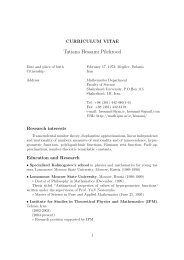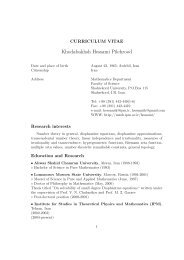Betti numbers of modules over Noetherian rings with ... - IPM
Betti numbers of modules over Noetherian rings with ... - IPM
Betti numbers of modules over Noetherian rings with ... - IPM
You also want an ePaper? Increase the reach of your titles
YUMPU automatically turns print PDFs into web optimized ePapers that Google loves.
Chapter 3: Growth <strong>of</strong> the <strong>Betti</strong> sequence <strong>of</strong> the canonical module 41<br />
Pro<strong>of</strong>. 1. For each i > 0, put Bi = Tor R i (ωR, k). Applying the functor ωR ⊗R −<br />
to the given exact sequence, we obtain a long exact sequence part <strong>of</strong> which<br />
is Tor R j+1(ωR, M) → B m j+1 → B n j → Tor R j (ωR, M). Note that Bi = k ri where<br />
ri = β R i (ωR). Thus for each j indeed we have the following exact sequence,<br />
Tor R j+1(ωR, M) → k mrj+1 → k nrj → Tor R j (ωR, M).<br />
Since Tor R t (ωR, M) = Tor R t+1(ωR, M) = 0, it yields that nrt = mrt+1.<br />
In particular, if Tor R j (ωR, M) = 0 for all j ≤ t, it turns out recursively that<br />
rt = (n/m) t−1 r1, that is, β R t (ωR) = (n/m) t−1 · β R 1 (ωR).<br />
2. This is proved the same way as (1), using ExtR(ωR, −).<br />
3. Since we have Tor R j (ωR, M) = 0 for all j ≥ t + 1, similar to (1) we get that<br />
β R j+t(ωR) = (n/m) j−1 · β R t+1(ωR) for all j ≥ 1. Now note that if n > m, then<br />
we get the exponential growth <strong>of</strong> {β R i (ωR)} <strong>with</strong> the base n/m. When n < m,<br />
R will be Gorenstein because then β R i (ωR) = 0 for i ≫ 0. Furthermore, in the<br />
case n = m we would obtain constant <strong>Betti</strong> <strong>numbers</strong>. This would give the<br />
polynomial growth, assuming <strong>of</strong> course that each β R i (ωR) = 0.<br />
4. The same interpretations as that <strong>of</strong> (3).<br />
In the following some examples are provided.<br />
Example 3.1.2. Let (R, m, k) be a local CM ring which has a canonical module ωR.<br />
Let M be an R-module such that Tor R<br />
i (ωR, M) = 0, ∀i ≫ 0 (e.g., proj.dimM < ∞).<br />
1. If the sequence 0 → k 2 → M → k 3 → 0 is exact, then {β R i (ωR)} has exponential<br />
growth, provided <strong>of</strong> course that β i R (ωR) = 0 for i ≫ 0


